
Science-fiction is pretty much what cinema was invented for. If movies are about transporting us to other worlds, then sci-fi is the purest essence of that. It’s no coincidence that the three highest-grossing films of all time – Avatar, Avengers: Endgame and Avatar: The Way of Water – all fall under the sci-fi banner. Audiences simply can’t get enough of it.
2025 is looking like it could be a landmark year for sci-fi, with sequels to huge franchises and new films from some of the genre’s biggest names coming to the cinema. But what is it that makes a great sci-fi movie? To explore that question, let’s travel through some of the year’s most exciting releases.
It takes us to other worlds
Arguably the oldest genre in film, sci-fi’s beginnings on screen go all the way back to 1902 and Georges Méliès’ A Journey to the Moon. That film was simple, but it did what all great sci-fi does: turned our dreams into reality.
Since then, directors have been pushing the boundaries of filmmaking technology to take audiences on journeys to the improbable. A really good sci-fi starts with a ‘what if?’ – an idea that could never feasibly happen in our current reality – and figures out how to bring it to life.
Nowhere is that better illustrated than in the Jurassic Park series. Is there any child who hasn’t imagined what would happen if dinosaurs still roamed the earth? In 1993, Steven Spielberg showed us, in jaw-dropping form, how that might look. Jurassic World: Rebirth (at Cineworld from July 2), the seventh film in the franchise, will take us back almost to where it all began, with a team heading to an island that’s home to dinosaurs too dangerous for the original park. The special effects have moved on in the past 32 years, but the core of a great dinosaur movie hasn’t changed, so prepare for another visceral ride.
The joy of sci-fi is that it can sometimes see into the future. When the original Tron was released in 1982, computers were in their relative infancy. This story about a man zapped into a computer world saw artificial intelligence and virtual reality as fantasy. Later this year, the third film in the series, Tron: Ares (from October 10), will see the computer world crossing into ours. What future technology might this one imagine? The thing with sci-fi is there’s never a limit to what’s possible.
It tells us about ourselves
Sci-fi may show us imagined places, but it’s always been a way for storytellers to take a different look at the world we live in. Star Wars is essentially about good guys with swords (OK, lightsabers) fighting bad guys, but it’s also about people rising up against authoritarianism. Alien is about a monster loose on a spaceship, but it’s also about the horror of being a woman in a man’s world.
Sci-fi can spark discussion about complicated contemporary subjects in a way that’s new and entertaining. 2025 holds some potentially very juicy explorations of the way we live.
28 Years Later (from June 20) is the long-awaited third film in the 28 Days Later series, with original director Danny Boyle back behind the camera. Ostensibly a zombie-ish movie about the UK being overtaken by a virus that turns those infected into mindless flesh-eaters, it’s also a take on the perilous balance of civilisation. In this third movie, the heavily infected UK has been sealed off from the rest of the world, with other countries desperate to protect themselves. You can read that in any way you wish.
The first M3GAN was a highly entertaining, fantastical take on a very current concern: the potential dangers of artificial intelligence, with a synthetic companion going to violent lengths to protect her human friend. M3GAN 2.0 (from June 27) takes that idea even further, with a new foe aiming for an AI takeover.
Edgar Wright’s The Running Man (from November 21), a new take on the Stephen King novel, imagines what might happen if reality TV went too far. In a dystopian future, a gameshow pits unarmed contestants in a race against bloodthirsty hunters. If the contestants escape, they win a fortune. If they’re caught, they die. The fact King wrote the book in 1982 and it’s still relevant today shows how a great sci-fi idea can last. Themes of political unrest, the eternal rise of technology, and humans’ capacity to turn on each other, will always be relevant.
It brings out the best in cinema
Because sci-fi, more than any other movie genre, is about being transported to another reality, it’s at its very best watched on a huge screen, so you can be fully wrapped in the world.
Probably the ultimate architect of the immersive cinema experience is director James Cameron. With 2009’s Avatar, he didn’t just create a photo-realistic alien world full of blue creatures, he did it with the most sophisticated 3D ever seen. It was game-changing cinema. Avatar: Fire and Ash (from December 19) is the third film in the series and promises to take audiences to parts of the Avatar world more spectacular than any we’ve seen before. And there really will be only one way to fully experience it: on the largest screen you can find, surrounded by other rapt viewers.
That’s only a sample of the sci-fi coming our way in 2025. There’s also Pixar’s Elio (from June 20), in which a boy is accidentally pulled into an alien war; Predator: Badlands (from November 7), which is set to put a dramatic spin on the Predator series, making the alien the hero for once. And then there are two huge sci-fi superhero movies. Fantastic Four: First Steps (from July 25) sees a family gain superpowers after an experiment goes wrong, while Superman (from July 11) reinvents the boy from Krypton for a new generation.
2025 at the movies is set to be out of this world.


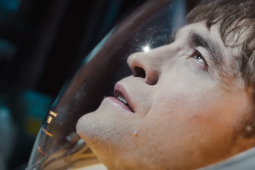


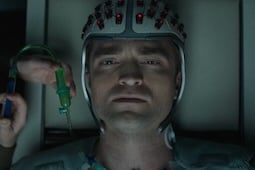

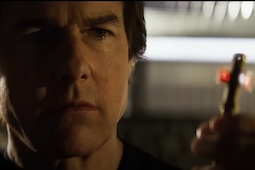
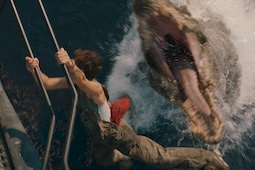
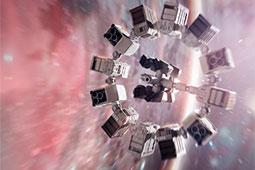
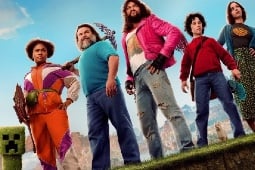



.jpg)
.png)






